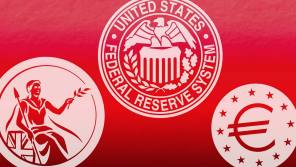

Brexit’s impact on European investing very much depends on the type of Brexit that is ultimately implemented both in the short term – in the form of any withdrawal agreement – but also in the longer term post-transition.
Clearly, at this stage everything remains very unclear, but we can outline some broad potential outcomes and consider the possible impacts in each case.
First, however, we should consider the parts of the European economy impacted by Brexit and their importance to the stock market.
Impact on markets
The two primary areas of impact are tariffs and regulations that enable products to cross borders without hindrance.
A simple example of this is the recent spat on chickens with the US, where Europe does not allow chickens to be washed in chlorine, but the US does.
This regulatory convergence is an important trade facilitator.

While the media tends to focus on areas such as food and tourism, from a European market impact view, these are not of any huge importance.
The most impacted sectors from a stock market point of view are manufacturing and finance.
Most prominent is obviously manufacturing, where supply chains for many European companies are very integrated across borders and, for many companies, the UK is a very significant end market.
It pays to bear in mind that these days supply chains are integrated globally and it is just the UK to Europe part of that supply chain that is potentially impacted.
Of particular importance is the automobile sector, a sector in which the UK is not only a key supplier, but, of particular relevance, an important end market.
Another area to consider is the aerospace sector, where again the UK is a major part of an integrated supply chain.
Finance future unclear
Next in importance is services, particularly financial services. Here the impact is much less clear; as in the consumer sector, local regulations still dominate and there is very little business done across borders.
However, in wholesale markets, London dominates and has done for many decades. Any disruption of access to the UK’s wholesale capital markets for European companies would be hugely damaging, but also highly unlikely to occur.
When we consider the importance of these sectors to the European stock market we find that the impacted areas are of very low importance, and while the German auto manufacturers are of large importance to the German economy, their stock market importance is pretty irrelevant, with the largest company Daimler accounting for less than 2 per cent of the Euro Stoxx 50 Index.
This reflects the fact that the industry has a low profitability and low valuations even without any impact from Brexit.
Perhaps more important might be the impact of higher value-added manufacturing such as aerospace, where the imposition of tariffs and regulation would impact prices. However, this is an area of strategic importance where substitution is difficult and time consuming, so near-term impacts are likely to be minimal.
Wholesale financial services these days are dominated by the big US investment banks and therefore have little relevance to the European stock market. Local banks and global insurers are important to the stock markets, but these are not expected to see any meaningful impact.
Knock-on effects
We do, however, need to consider the second order impacts on the market, such as the impact any disruption to manufacturing supply chains might have on the other areas of the European stock market.
There might be a material economic setback in the UK and Europe as a result of a disruptive Brexit process, although none has been seen so far. This could have a knock-on effect on other sectors of the European market, such as consumer cyclicals, domestic banks and so on.
Key Points
- The sectors in Europe most impacted from Brexit are manufacturing and finance
- The impact on financial services is not so clear
- Luxury goods and healthcare are big in Europe, but are unlikely to be affected
This impact is potentially more severe if we are thinking of extreme Brexit scenarios in the short term, particularly if non-tariff barriers are erected to prevent cross-border trade, although there are no proposals currently suggesting that this would be the case.
Bear in mind all products currently sold in Europe and the UK currently meet each other’s regulations.
However, a slowdown in growth reflecting a transition to new arrangements is plausible, which might impact the broader market in areas such as retailing and consumer cyclicals, but again these are small sectors in Europe.
European immunity
In summary, the European stock market is in fact led by areas largely immune from Brexit impact.
An example is healthcare, where some of the largest stocks in the benchmark are the giant international pharmaceutical companies such Roche and Novartis, where despite scare stories of drug shortages, there is unlikely to be anything other than a very marginal impact on these global businesses.
Other areas of European success are consumer branded and luxury goods, such as L’Oréal and LVMH, where again there is unlikely to be all but the shortest-term impact on these businesses perhaps through a demand decline following a disorderly exit, but, in these cases the outlook for Chinese growth is of far greater importance.
Our view is that Brexit is largely a side-issue when we consider investing in Europe. The reasons why you might invest in Europe have little to do with the outlook for the European economy, unless you are planning to buy the banks or industrial cyclicals.
The main attractions of Europe as a stock market are its focus on some high value-added fast-growing areas such as luxury goods, healthcare and high value-added manufacturing and these areas will feel little to no impact whatever the outcome of the never-ending Brexit process.
David Jane is manager of Miton's multi-asset fund range



